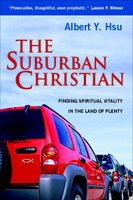Our friend Cindy Crosby has a great article reviewing Michael Pollan's The Omnivore's Dilemma: A Natural History of Four Meals, which "traces the path of four meals through their various systems: organic food, alternative food, industrial food (such as fast food), and food we forage for ourselves. Each system exploration results in a meal: cheap fast-food take-out from McDonalds eaten in the car; a pricey repast from Whole Foods consumed at the dinner table; a grilled chicken and a chocolate soufflé made from sustainable farm animals and local ingredients; and a meal he foraged and hunted and ate with some help from friends, right down to mushrooms and wild pig." Here's an excerpt from Cindy's article:
Pollan tackles some daunting questions. What ethics are involved in our food choices? What impact do they have on the environment? And who or what are we subsidizing with our food choices?
What about the ethics of trucking "organically grown asparagus from Argentina" to America's suburbs in January? What are the economics of fuel and the cost to the people of Argentina, whose land is feeding Americans? The food industry, Pollan points out, burns nearly a fifth of all the petroleum consumed in the United States. And most "organic farming" is done on organic industrial farms, a contradiction in terms that Pollan explores at length in the fields of California. "Is there anything wrong with this picture? I'm not sure, frankly," Pollan concludes. What he finds is "a much greener machine, but a machine, nonetheless."
Perhaps, as Pollan writes, the best way to fight industrial eating is to recall people to the superior pleasure of traditional foods enjoyed communally. Then, our eating contributes to the survival of landscapes and species and traditional foods that would otherwise succumb to the "one world, one taste" fast food ideal. Having a diversified food economy where consumers have access to thriving alternative food sources, he concludes, allows us to withstand shocks to the system: outbreaks of mad cow disease, petroleum running out, pesticides that quit working.
It's possible to live with contradictions in how we eat, Pollan believes, but important that we face up to our compromises. For me, this means planting a little more garden to offset my occasional golden arches French fry consumption; thinking more seriously about taking out that local farm share at the cooperative down the road; and inviting friends over for "slow" dinners and conversation more often. In a fallen world, we take baby steps on the journey back to wholeness.
I'm reading this over my lunch, and I'm noticing how non-communal my work lunches tend to be. I'm often eating at my desk. I would have eaten with my wife, but she has a business lunch today. I probably need to eat in the lunchroom more often. But we did have a company lunch yesterday for our annual inventory, and tonight is our company picnic, followed by Shakespeare in the park. So I'm grateful for the times our corporate community has meals together. It's the difference between merely eating and truly breaking bread together.


